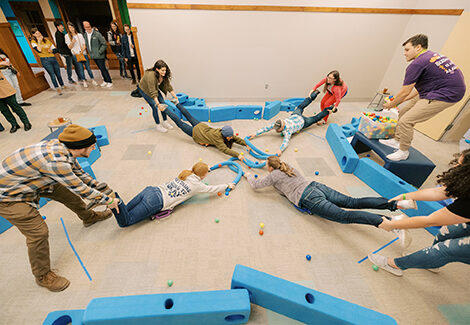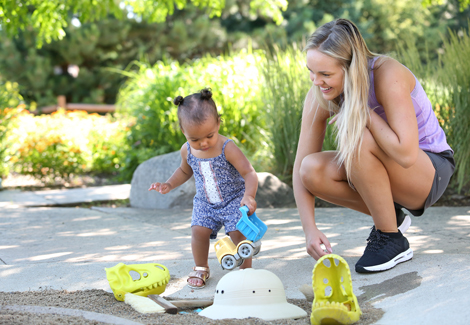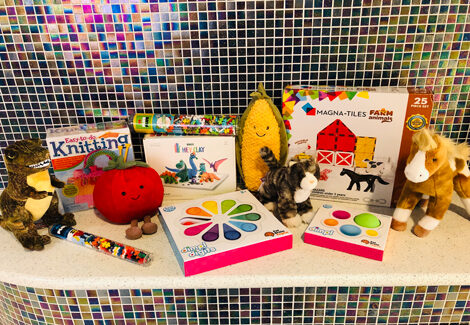Teachable moments occur every day. They are not large milestones like learning addition or learning how to read. Rather, they are small moments that lay the groundwork for deeper learning by connecting to the present.
Teachable moments appear without much notice and little preparation.
And when they happen, children remain engaged because what they are learning directly relates to what they are seeing and doing.
So, how do you embrace moments of spontaneous learning? Here are a few tips:
- Children are always watching.
- Caregivers are important role models in the lives of children, the way we act (even subconsciously) sends a message. As children watch, they model their own behaviors after the way their adults act and react. As you experience different situations and emotions, talk with children about how you reacted and why.
- It’s easy to give answers, but take time to ask questions.
- When children start asking questions, resist the urge to answer and instead ask them what they think. As they explain their thinking, ask them to tell you more about why they think that way. By challenging children to provide reasoning, you are empowering them to believe they are competent and capable in their own learning.
- Try and try again.
- Failure is a part of learning. While it is hard to watch children struggle, children (and adults, too) learn more from problem-solving than from having others solve problems for them. Listen to their concerns and frustrations about what isn’t working, and help them discover alternative solutions rather than giving an answer.
- Slow down and be in the moment.
- While it can be challenging to wait for children to finish exploring, remember that they may be exploring these concepts for the very first time. If the activity is one that’s been investigated repeatedly, remember that repetition is how children learn and practice skills.
- Use everyday tasks as learning opportunities.
- Everyday tasks can teach children valuable life skills, like cooking or washing dishes. Having children help with these tasks will also teach about responsibility and working together.
These are just a few ways to take advantage of the teachable moments that happen daily. By giving children the chance to practice new skills and answer their own questions, we are priming them for future learning.
So, don’t be afraid to use moments of spontaneous learning to the fullest!



